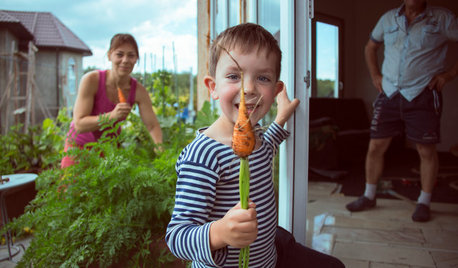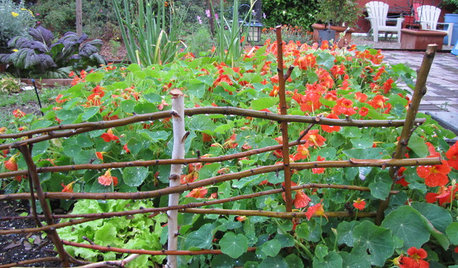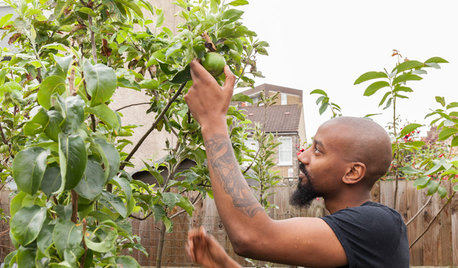new blackberries in 2015
karoliberty OKC zone 7a
9 years ago
Related Stories

GARDENING GUIDESHow to Keep Your Citrus Trees Well Fed and Healthy
Ripe for some citrus fertilizer know-how? This mini guide will help your lemon, orange and grapefruit trees flourish
Full Story
GARDENING AND LANDSCAPINGWorld of Design: 10 Home Gardeners Show Us Their Sweet Summer Harvests
From New York to Tokyo, these gardeners have turned their yards, terraces and rooftops into places of bounty
Full Story
FUN HOUZZDoes Your Home Have a Hidden Message?
If you have ever left or found a message during a construction project, we want to see it!
Full Story
GARDENING AND LANDSCAPINGEdible Flowers Offer a Sweet Taste from the Garden
Flowers that beautify the landscape can also pretty up the plate or sweeten a spread
Full Story
GARDENING GUIDESLush, Foodie Abundance in a Small Urban Garden
This modest backyard garden provides its owner with fruit and vegetables all year round, thanks to an innovative low-maintenance approach
Full Story





Okiedawn OK Zone 7
karoliberty OKC zone 7aOriginal Author
Related Professionals
Ballenger Creek Landscape Architects & Landscape Designers · Glen Ellyn Landscape Architects & Landscape Designers · North New Hyde Park Landscape Architects & Landscape Designers · Rancho Palos Verdes Landscape Architects & Landscape Designers · Surprise Landscape Contractors · Wilmington Landscape Contractors · East Haven Landscape Contractors · Hurricane Landscape Contractors · McLean Landscape Contractors · West Palm Beach Landscape Contractors · White Bear Lake Landscape Contractors · Carmel Decks, Patios & Outdoor Enclosures · Commerce City Decks, Patios & Outdoor Enclosures · Mobile Decks, Patios & Outdoor Enclosures · New York City Decks, Patios & Outdoor Enclosures